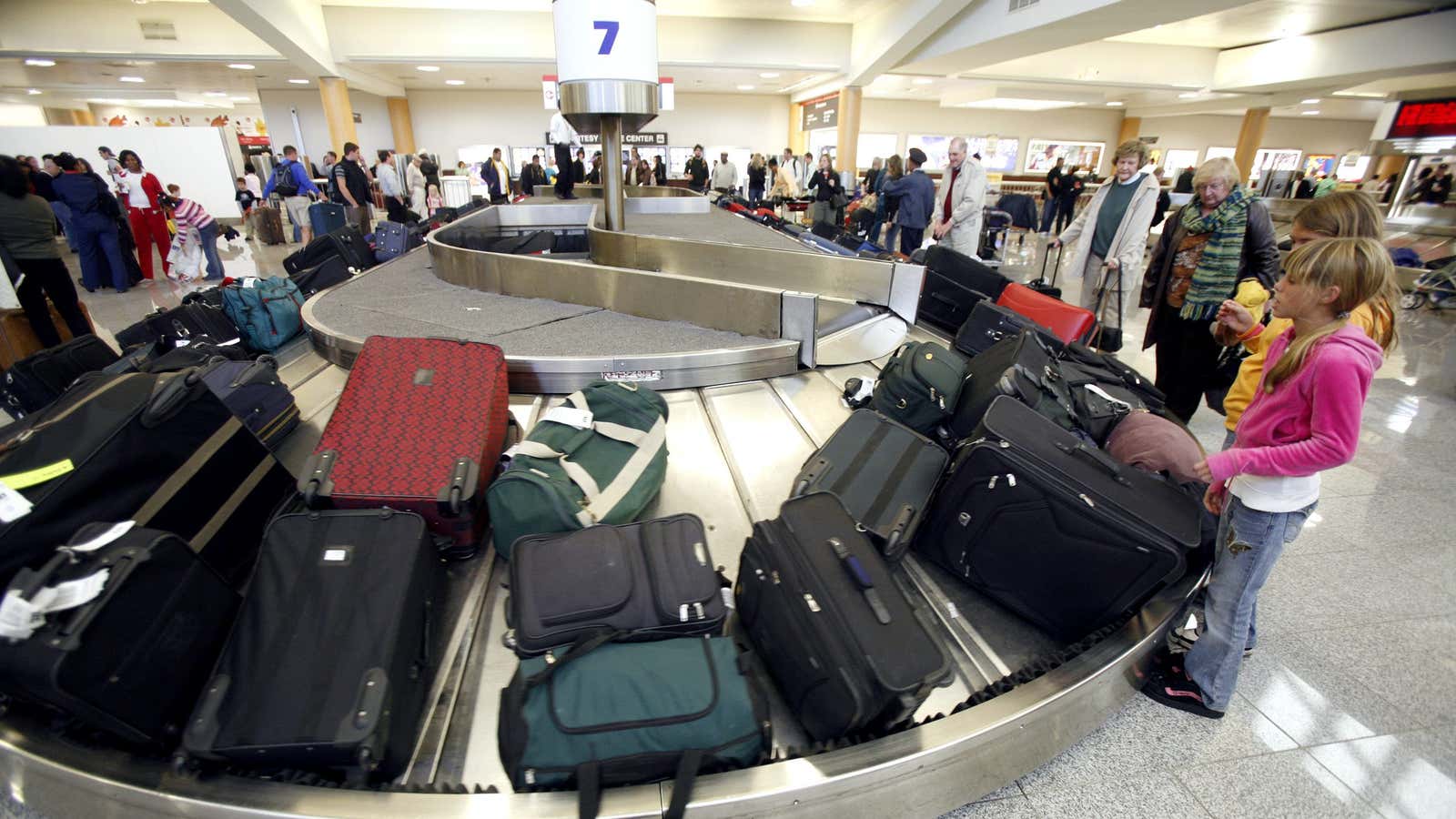With air travel comes a bombardment of fees for just about everything you might imagine. A snack that isn’t a small bag of pretzels? That’ll be $8. A blanket because your neighbor insists on keeping their air nozzle going full blast? Another $6. Then the most hated of all: the checked baggage fee. That $25 charge for the convenience of packing more may be annoying–but it also makes your air travel experience better.
A study (paywall) published in the journal Management Science details how checked bag fees reduce departure delays by analyzing about nine million US domestic flights between May 1, 2007 and May 1, 2009, before and after airlines started charging for checked baggage. Because baggage fees lead to fewer bags being checked, planes board and take off faster. Flights don’t have to wait for as many bags to go through an airport’s centralized baggage loading system. It turns out that the delay from passengers stuffing their bags into overhead compartments is less than the delay caused by checked bags.
The study found that charging passengers for their second checked bag led to an average decrease in departure delay time of about a minute, while charging for the first checked bag decreased that time by two minutes. That may not seem like much, but every minute counts for airlines. If they can decrease delays, they can operate more flights in a day, and later flights don’t get bumped.
American carriers started charging for checked baggage in 2008, citing rising fuel costs. Major airlines like United, Delta, and American charge $25 for the first bag and $35 for the second, as long as they’re both under 50 lbs (fees for additional or oversize bags are much steeper, starting at $75 per heavy bag on Delta). Discount carriers, such as Frontier, Allegiant, and Spirit, even charge as much as $55 for carry-on bags. Baggage fees generated over $3.8 billion in revenue for US carriers in 2015.
All the airlines benefit from fewer checked bags, but one carrier benefits less. Southwest Airlines, which doesn’t charge for customers’ first two checked bags, saw a smaller drop in its departure delay times than did carriers that do charge. But the delays caused by its ”bags fly free” policy results in the discount carrier being unable to operate as many flights. Those extra flights could bring in annual revenue of $24 million if the airline charged for the second checked bag, and $35 million if it charged for the first checked bag, the study said.
Southwest called their free bag policy a “cornerstone” of their customer service and Steve Hozdulick, the airline’s managing director of operational performance, said in a statement, “we don’t view checked bags as a significant detractor from our overall on-time performance.”
So while the checked baggage fee adds to the feeling that you’re getting nickeled and dimed at the airport, that $25 charge actually helps your plane pull away from the gate a little bit sooner.
